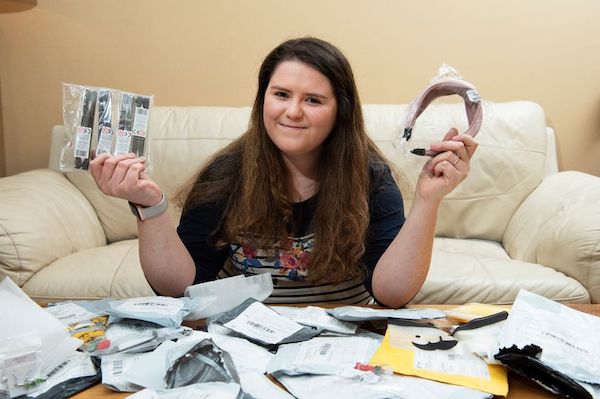
Ag officials in states across the country have issued warnings about bizarre packages of seeds that appear to be from China. They’ve apparently just been showing up in people’s mailboxes unsolicited by the receivers. Officials are warning residents not to plant any of the seeds as they could be invasive or harmful plants. So far, ag departments in Washington State, Louisiana, Kansas, Kentucky, and Ohio have all reported calls from a very confused public. Virginia has had over 900 complaints
Photos of the mysterious seeds that have been posted online show some came in white pouches with Chinese lettering and “China Post” stamped on the front while others have been small yellow envelopes. Kansas officials report some packages being labeled as jewelry. A spokesperson for the USDA’s Animal and Plant Health Inspection Service says it is working with U.S. Customs and Border Protection to “to prevent the unlawful entry of prohibited seeds and protect U.S. agriculture from invasive pests and noxious weeds,” and urged anyone who receives such items to contact state plant regulatory officials or A.P.H.I.S. officials in their state.
The whole thing seems so bizarre that some of us in the office actually thought this might be a fake story or some crazy prank when we first heard about it. There are a lot of wild theories out there but the more we looked into it, we realized that seeds are not the only mysterious packages being reported. People have also been shipped masks, books, a humidifier, a flashlight, a hand warmer, lotion…the list goes on. Some people report being inundated with hundreds of packages filled with things they never ordered and it’s happening all across the globe.
The explanation we found that sounds closest to the truth is that the seeds and other random shipments are part of something known as a “brushing scam.” Dick Eppstein, president of the Better Business Bureau Serving Northwest and West Central Ohio and Southeast Michigan explains, “What happens is overseas con artists send you merchandise and it just arrives. You didn’t pay for it. You didn’t order it.”
Eppstein says this scam gives the illusion that the business (usually foreign, third-party sellers) is credible by finding a person’s name and address online, sending a product to them, and writing a review using their name. However, for that review to be from a “verified buyer” on Amazon, they have to physically ship you something. They then post a fake, positive review to improve their products’ ratings, which can also help improve their product placement.
Before you panic, understand that your account has probably not been hacked, though it is a remote possibility and you should definitely go check your order history. Most likely, they simply found your information online or possibly purchased it from some other scam outfit.
One woman traced it back to an order she placed on a Chinese e-commerce site. The company she made the purchase from turned around and created user profiles for “her” on other e-commerce sites that they wanted to have higher sales ratings and favorable reviews on. They even shop with the fake profiles to make them look legit, though these profiles are not linked to the real person’s bank accounts. Not typically, at least. There are hundreds of variations.
The payoff could be highly profitable from the scammers’ perspective if the product they are sending out is a nearly worthless packet of seeds but they are writing reviews for much higher value items. Not that those items are any more legitimate!
Unfortunately, there is not a lot U.S. consumers can do to stop these unwanted “presents” from showing up. If you receive unsolicited items or empty packages on your doorstep, here’s what experts say you should do:
- Report the fake review to the online seller and/or retailer. “Brushing” is illegal in most countries and websites are obliged to take fake reviews offline.
- Change the passwords on your online accounts (even the ones that have nothing to do with shopping, like your social media). If there’s any chance your account was hacked (and if that is how your info was retrieved), you don’t want to take any chances.
- Report the scam to the FTC. Don’t let other people fall prey to the same scam!
- Read up a little more on brushing scams. This article from ID Theft Resource Center is a good place to start. Click HERE.
Additionally, ag departments in several states stress that any unsolicited seeds should not be planted. Instead, put them in a zip-top bag to deliver to regulatory authorities. Don Robison, of the Indiana State Chemist Office, said it is important those receiving the packets do not simply throw them away, either. “We want to identify what they are and sending them to a landfill is the equivalent of planting them by placing them into soil and moisture,” Robison told DTN. He urged those receiving unsolicited seed packages to contact state authorities. USDA urges anyone who receives an unsolicited package of seeds to immediately contact their State plant regulatory official or APHIS State plant health director. (Source: NBC, FoolProofMe, BBB, New York Times)










